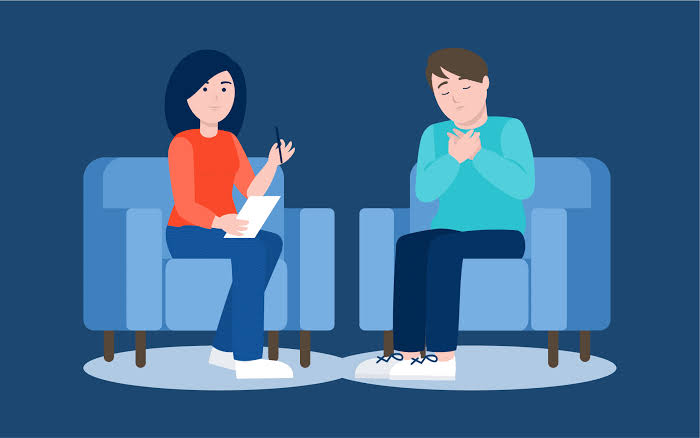What are types of Personality Tests and How do they Work?

What do personality tests look for?
Unlike aptitude and cognitive ability tests, which assess ability and specific skills, personality tests assess traits such as extraversion or conscientiousness or provide insight into someone’s personality type.
There are no correct or incorrect answers, and it is critical to communicate this to candidates when administering personality tests in order to improve the candidate experience and obtain authentic responses.
Personality tests or aptitude tests do not provide a direct measurement of performance potential; in fact, according to Frank L. Schmidt, a professor at the University of Iowa, they are fairly inaccurate in predicting job performance.
Instead, tests are designed to provide a more in-depth understanding of an individual’s characteristics, experience, perceptions, motivation, and preferences. The results are used to determine how they would behave in specific situations or where they stand on a scale of specific characteristics. A question about how someone interacts at a party, for example, could indicate how they would behave as a team member.
Each personality test is unique and assesses different core characteristics. Some delve into what motivates people to make specific decisions. Others can help you understand how a candidate might act in a leadership role when faced with difficult decisions.
When working through your pre-employment process, all tests have interesting and useful outcomes, but it is up to you and your organization to decide which test makes the most sense to implement.
How do personality tests actually assess someone’s personality?
Tests use either objective or projective measures to assess someone’s personality and character. Both types of personality assessments do not assess aptitude or intelligence; rather, they assess how people react to various situations or stimuli.
Tests that are objective:
Objective tests frequently rely on self-reporting, in which test takers simply respond to questions about their behavior or preferences. This is the most common type of pre-employment personality test because it produces the most accurate and bias-free results.
Tests of projection:
Projective tests are also available, in which test takers are presented with random, ambiguous stimuli that are used to assess one’s personality traits. This is common in tests such as the well-known Rorschach inkblot test, which many argue is not a reliable method of measuring personality traits.
When taking pre-employment personality tests, candidates may falsify their answers to fit what they believe employers want to hear. To avoid this, explain why you’re administering a personality test to applicants and encourage them to simply provide honest and authentic responses.
Personality test types:
There are numerous personality tests available for use in the hiring process.
Some, such as the Myers-Briggs test, are well-known both within and outside of the recruitment industry. Others, such as Mercer Mettl’s online aptitude test, have been developed by our own psychometric testing experts and are not available anywhere else.
Each of these assessments takes a unique approach to assessing candidates’ personality traits. Some are well-known tests known for their objectivity (for example, the Big 5 (OCEAN) test), while others can assist you in hiring talent that fits your culture and helps you build a strong workforce with a high level of team cohesion.
More information about each of the personality tests we offer, how they can help you make better hiring decisions, and which roles they can be used for, can be found below.
Enneagram
The Enneagram personality test, developed by Bolivian psycho-spiritual teacher Oscar Ichazo and Chilean psychiatrist Claudio Naranjo, defines nine interconnected personality types.
The test has been used in both spiritual and, more recently, workplace settings to assess how potential employees handle interpersonal situations and build relationships. The test yields one of nine “enneatypes” based on a nine-point geometric figure, indicating that all types are interconnected.
The Enneagram can assist employers in identifying candidates who are best suited for specific roles. Type 7, The Enthusiast, for example, may be a good fit for a Flight Attendant position because their main desire is to explore and experience new things. All nine Enneagram types have recommended jobs for each, and employers can use this information to determine which Enneagram type is best suited for which role.
This test, like other personality tests, should not be used to make final hiring decisions. Instead, it should be used to get to know candidates and learn more about their interpersonal skills.
Culture Add
Company culture influences the success of your recruitment and retention strategy in a variety of ways. It is about how managers and leaders are perceived, how team members interact with one another, and how the company’s values and mission are interwoven throughout the entire organization, rather than having a hip office space or providing lots of nice perks.
Every company culture is distinct. As a result, we’ve created a test that is tailored to your company’s unique characteristics, allowing you to hire top talent who shares your vision, mission, and values.
The Culture Add test determines how well an applicant’s values and interests align with the values and mission of your company. Based on a customized survey you fill out, it allows you to determine whether their behavior would make them an ideal hire.
What the test determines: This test determines candidates’ culture fit for all job roles.
Whether you’re a growing startup or a large corporation, developing and maintaining a strong culture is one of the most important competitive advantages you can have in the market. This Culture Add test will assist you in charting your course.
Read Also : TDS On Bitcoin Transfers: Buyers, Brokers, and Exchanges Must Withhold TDS.
16 Types
Carl Jung, a renowned Swiss psychiatrist and psychoanalyst who founded analytical psychotherapy, is the inspiration for the 16 Types test. The Myers-Briggs test is very similar to the 16 Types test. It is a self-reporting test that assesses the various ways people perceive the world and make decisions.
What it tests for: The 16 Types allows employers to gain insight into a candidate’s source of energy, information processing style, and decision-making style. It also inquires about their preferred way of life. The 16 personality archetypes from four dichotomies, as in the Myers-Briggs assessment:
- Introversion (I) or Extraversion (E)
- Intuition (N) or Sensing (S)
- Feeling (F) or Thinking (T)
- Judging (J) or Perceiving (P)
What the test determines: This test should not be used as an evaluation tool in and of itself, but rather as a means of gaining a thorough understanding of your applicants’ personality traits and behaviors. It can assist you in getting to know the candidate better and determining what questions to ask during the interview. The test can help determine how people perceive their surroundings; however, it should not be used as a final decision-maker, but rather as a supportive measure to better understand the potential employee.
There’s no doubt that personality assessments are valuable tools for hiring top talent in Mercer Mettl, which helps you learn more about your candidates, build diverse teams, and improve organizational culture.




